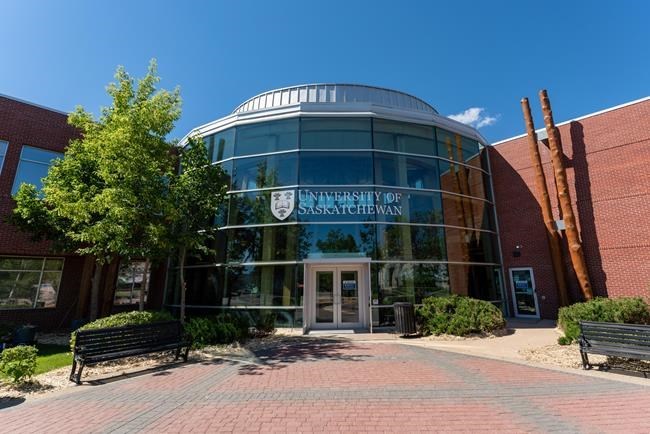SASKATOON — A report commissioned after controversy circled a health professor's claims of being Métis says the University of Saskatchewan was unprepared for Indigenous identity fraud and uneducated on Indigenous people.
"Indigenous identity fraudsters have exposed the ignorance of USask with respect to Indigenous peoples," says the report by Jean Teillet released Thursday.
The University of Saskatchewan contracted Teillet, a lawyer who specializes in Indigenous rights, to do an independent investigation before health professor Carrie Bourassa resigned from her position earlier this year.Â
Bourassa was placed on leave and suspended from her duties as a professor in the College of Medicinelast year, following a CBC report that her claims about being MĂ©tis did not add up.Â
Peter Stoicheff, the university's president, said the report is not about Bourassa, because she is no longer an employee of the university.
“It looks that very difficult issue straight in the eye in a very useful way for the entire country,” Stoicheff said.
The report says the issue of Indigenous identify fraud is faced by universities and other institutions across the country, which have long relied on self-identification. Some universities have committed to enhancing policies around Indigenous identification, including the University of Saskatchewan, University of Manitoba and Queen's University in Ontario.
It says universities did not anticipate and were not prepared for non-Indigenous people trying to take advantage of opportunities created for their Indigenous colleagues. And there was a general failure to recognize fraudsters and ignorance about how to identify Indigenous Peoples.
Teillet refers in the report to the cases of author Joseph Boyden and Michelle Latimer, a filmmaker and producer, who both had their Indigenous identities questioned in recent years.Â
The report lists red flags to help recognize Indigenous identity fraud, including conflicting stories, vague claims, repeated references to ceremony and claiming membership in a pan-Indigenous organization. It also says family stories or secrets and a reliance on stereotypes should raise concerns.
“This is not a proposal that the academy begin to police identity,” the report says.
“It is a proposal that the academy educate itself about Indigenous identity fraud performance patterns and take steps to eliminate the fraudsters.”
The report says asking for verification evidence is not determining whether an applicant is Indigenous. It is putting in place a process to ensure honesty.
Stoicheff said the report has recommendations for how the University of Saskatchewan should implement its new policy on Indigenous identity verification, which was put in place following the Bourassa controversy.
The policy, which was created by an Indigenous-led group and approved in July, requires people to present evidenceto support their identity if they are applying for employment or scholarships. The university said it is asking Indigenous communities to determine what evidence is necessary.
It has already faced criticism, with some people saying the document-driven approach is colonial and can leave out Indigenous people who have been disconnected from their communities by residential schools, adoption or the child-welfare system. Others have said the policy creates a burden that could discourage Indigenous students from applying for scholarships.
An Indigenous-led standing committee was created to help inform how the policy will continue to play out. Â
Airini, who goes by one name and is the University of Saskatchewan's provost and vice-president academic, said the policy was developed by and for Indigenous people. She said the report shows that while the road may be bumpy, it is going in the right direction.
“We are seeing that it’s a confirmation that we are following good process,” she said.
The report and its recommendations are to be provided to the standing committee to help shape the policy on identification. It can also be used as a teaching tool for human resources and recruitment staff, Stoicheffsaid.Â
Stoicheff added that the reporthas important information for all universities that are looking to develop similar policies.Â
“This is an institution of learning and higher learning, and there is always a lot to learn.”
This report by The Canadian Press was first published Nov. 3, 2022.Â
Kelly Geraldine Malone, The Canadian Press




